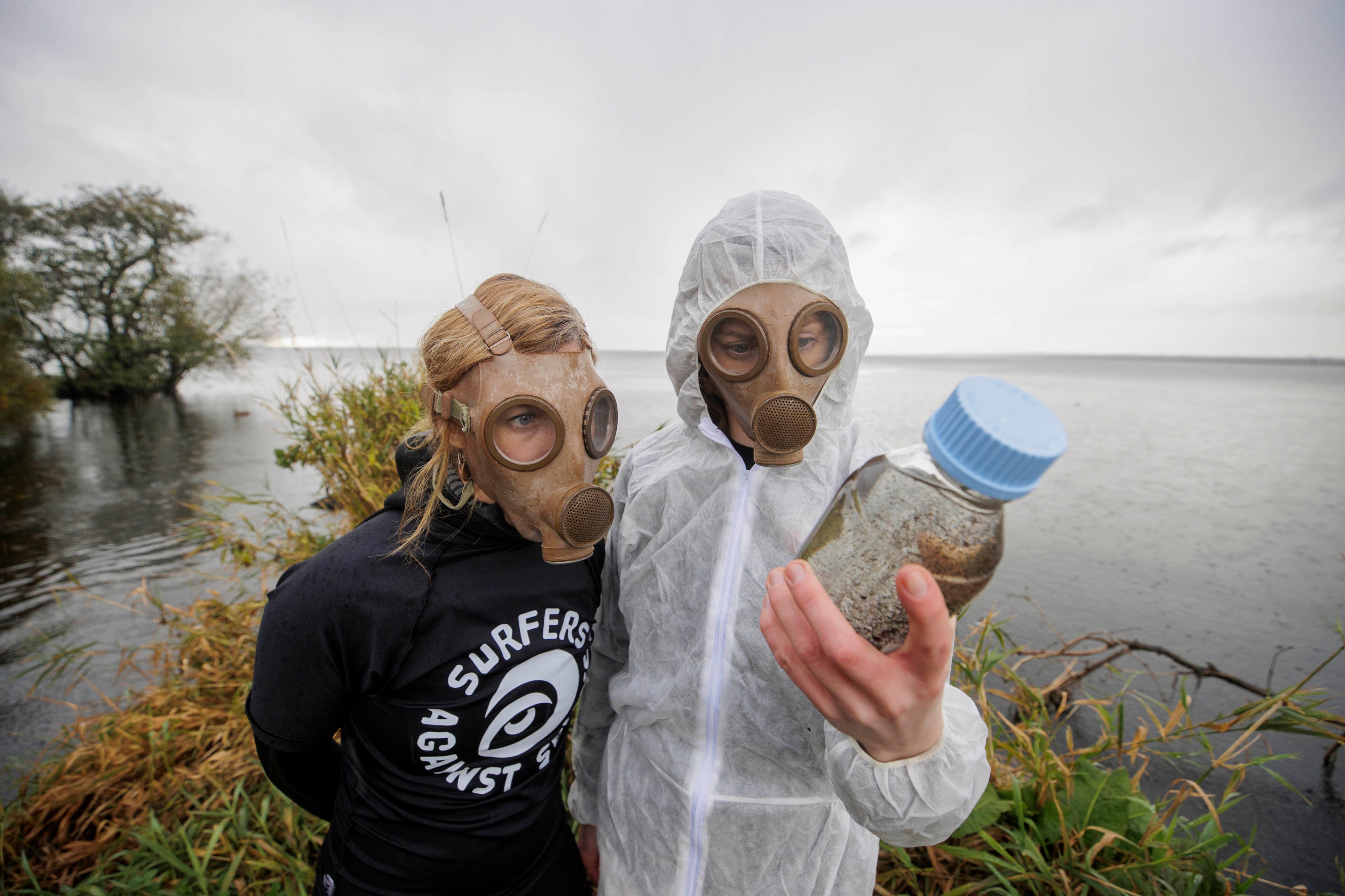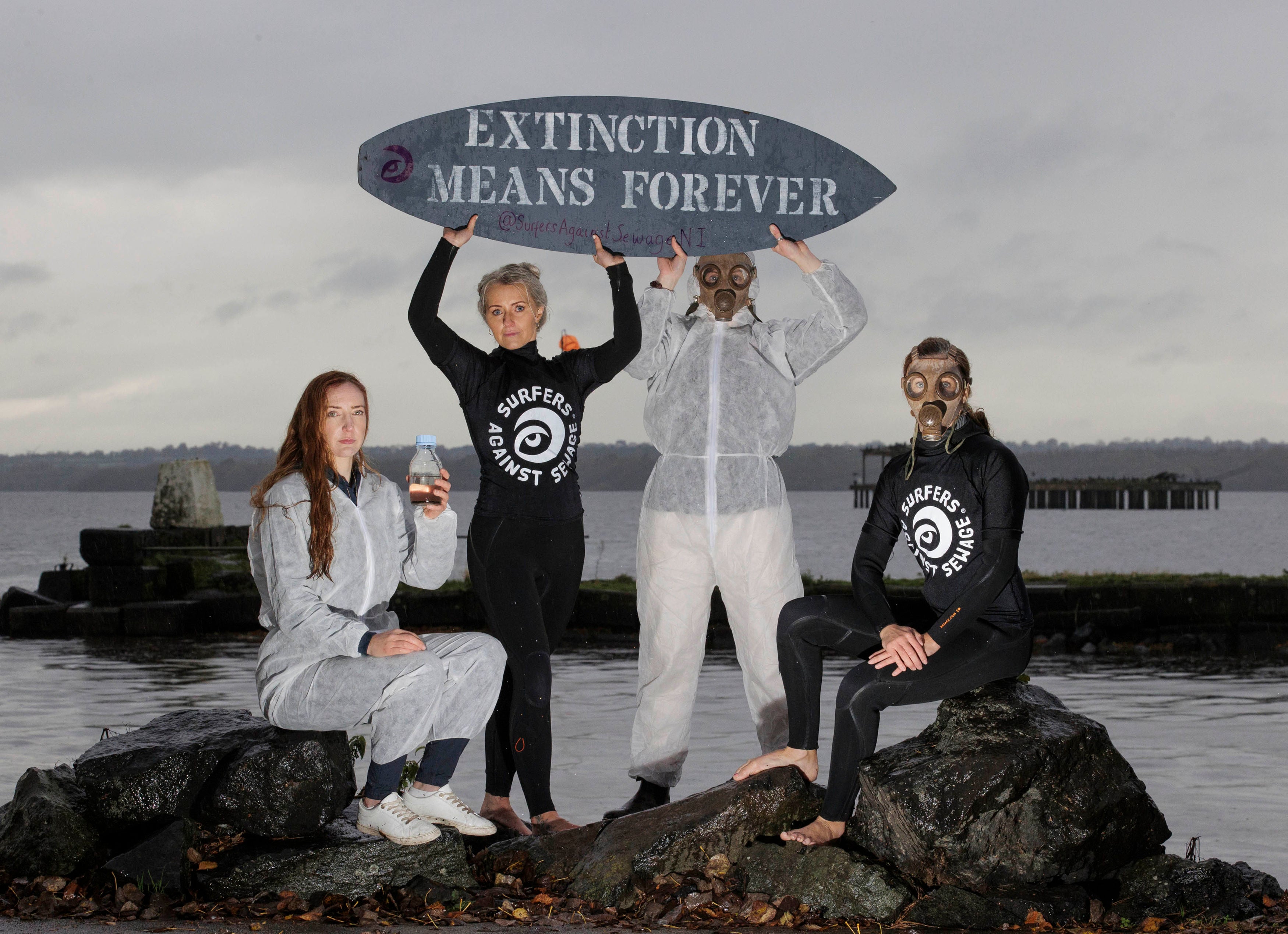Untreated sewage dumped into UK waters ‘1,000 times every day for year’ damning report says
Public has raised concerns about number of sewage discharges across the UK, particularly at beaches and swimming spots
Your support helps us to tell the story
From reproductive rights to climate change to Big Tech, The Independent is on the ground when the story is developing. Whether it's investigating the financials of Elon Musk's pro-Trump PAC or producing our latest documentary, 'The A Word', which shines a light on the American women fighting for reproductive rights, we know how important it is to parse out the facts from the messaging.
At such a critical moment in US history, we need reporters on the ground. Your donation allows us to keep sending journalists to speak to both sides of the story.
The Independent is trusted by Americans across the entire political spectrum. And unlike many other quality news outlets, we choose not to lock Americans out of our reporting and analysis with paywalls. We believe quality journalism should be available to everyone, paid for by those who can afford it.
Your support makes all the difference.Untreated sewage has been dumped into UK waters more than 399,000 times in the last year, a campaign group has claimed.
Surfers Against Sewage has released its annual Water Quality Report for 2023, which claims raw sewage was discharged an average of 1,090 times a day.
The report, which looked at data from environmental regulators across the country between October 2022 and September this year, further claims there were thousands of reports of sewage-related sickness in the same period.

SA , which campaigns for clean oceans, rivers and lakes, says it received nearly 2,000 reports of sewage-related illness and disease last year.
The environmental group said 40 UK locations were sampled weekly by volunteer citizens throughout the 2023 bathing season. Of these, 20 were popular sites for swimming and 20 were upstream of nearby sewage overflow associated with the swimming spots, although none of the sites are officially designated bathing waters.
The campaign group found that 24 of the locations would be deemed “poor” quality were they designated bathing waters, as per the Environment Agency’s methodology.
The research also suggests four out of 20 locations showed a clear decrease in water quality from locations upstream to those downstream of a sewage overflow.
SAS noted that many overflows in Scotland and Northern Ireland go unreported, meaning the headline figure is likely to be an underestimate of the frequency of sewage discharges into UK waters.

Giles Bristow, chief executive of SAS, said: “Yet again, our annual water quality report reveals the complacency and disregard of governments, water companies and regulators towards the health of rivers and coastlines in the UK – and by extension people’s health.
“We are seeing failure at every level – from governments and regulators failing to enforce the law, to water company fat cats pocketing dirty money and refusing to clean up their act – with the general public ending up the biggest loser every time.
“How many times can we say ‘enough is enough’? Our leaders need to prioritise transparency, ensure laws and regulations are properly enforced, and prevent water companies profiting from pollution.”
SAS said it has developed the End Sewage Pollution Manifesto in collaboration with environmental charities, community groups and sport governing bodies, which sets out policies to clean up UK rivers and seas.
These include enforcing the law and regulations, stopping pollution for profit, empowering a nature-led approach to tackle sewage pollution and ensuring transparency on sewage pollution.

Water minister Rebecca Pow said: “We agree the volume of pollution in our waters is utterly unacceptable, and this is the first Government in history to take such comprehensive action to tackle it.
“Our Plan for Water is delivering more investment, stronger regulation and tougher enforcement to ensure every overflow is monitored, reduce all sources of pollution and hand out swifter fines and penalties.
“This plan includes targets so strict they are leading to the largest infrastructure programme in water company history – £60 billion over 25 years – which in turn will result in hundreds of thousands fewer sewage discharges.”

An Environment Agency spokesperson said there is” more to do” to improve designated bathing sites and waterways and pledged to work with a variety of groups from farmers to water companies to reduce pollution.
A spokesperson for the trade association Water UK said: “We should all be able to safely enjoy our local beaches, rivers and other waterways. Water industry investment has transformed coastal bathing water with a sevenfold increase in the number of beaches achieving an ‘excellent’ from the Environment Agency since the 1990s.
“We now need to do the same for our rivers and inland bathing areas to ensure we meet public expectation. To do this companies are proposing to invest £11 billion over the next seven years to massively reduce storm overflows and radically improve our rivers for bathing and other recreational activities.”
A spokesperson for watchdog Ofwat added: “We have pushed companies to take urgent action to cut sewage discharges and have recently announced new measures to penalise companies that fail to fully monitor their storm overflows.
“From next year, we will also have new powers to take action against companies that pay out unearned dividends and can ensure customers no longer foot the bill for inappropriate bonuses. However, we are clear, current water company performance is simply not good enough.”

Join our commenting forum
Join thought-provoking conversations, follow other Independent readers and see their replies
Comments